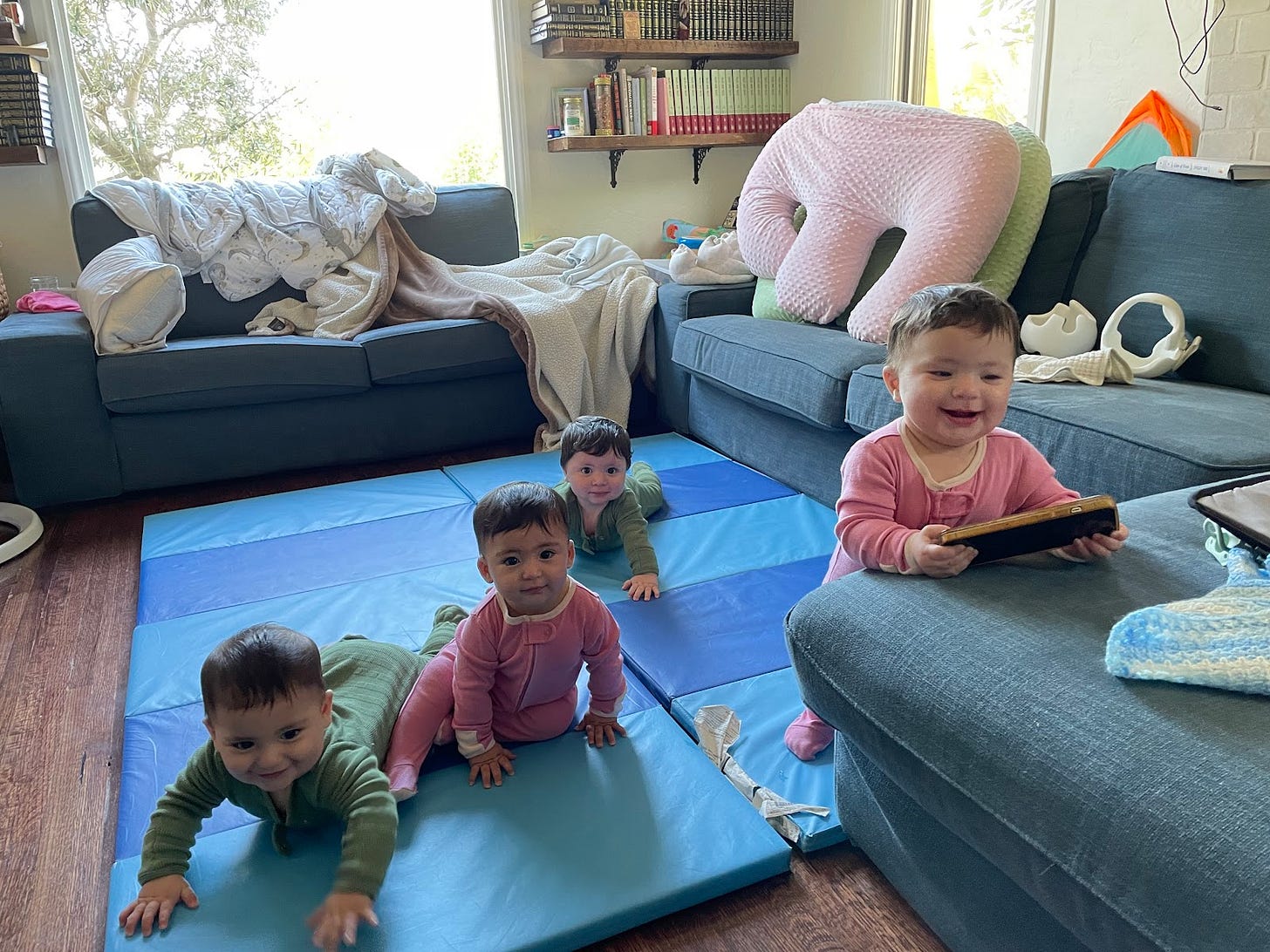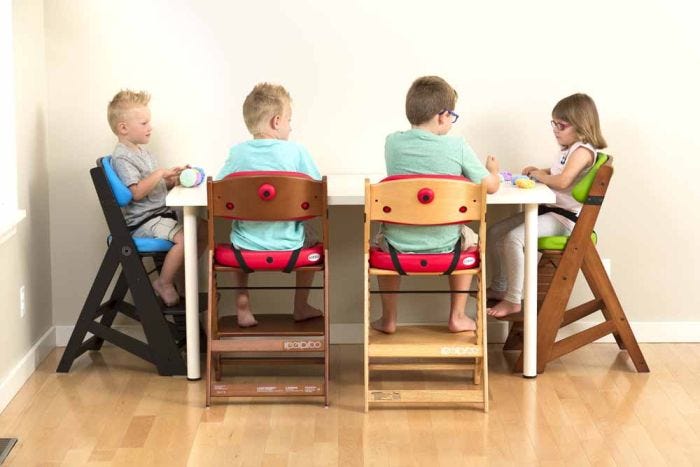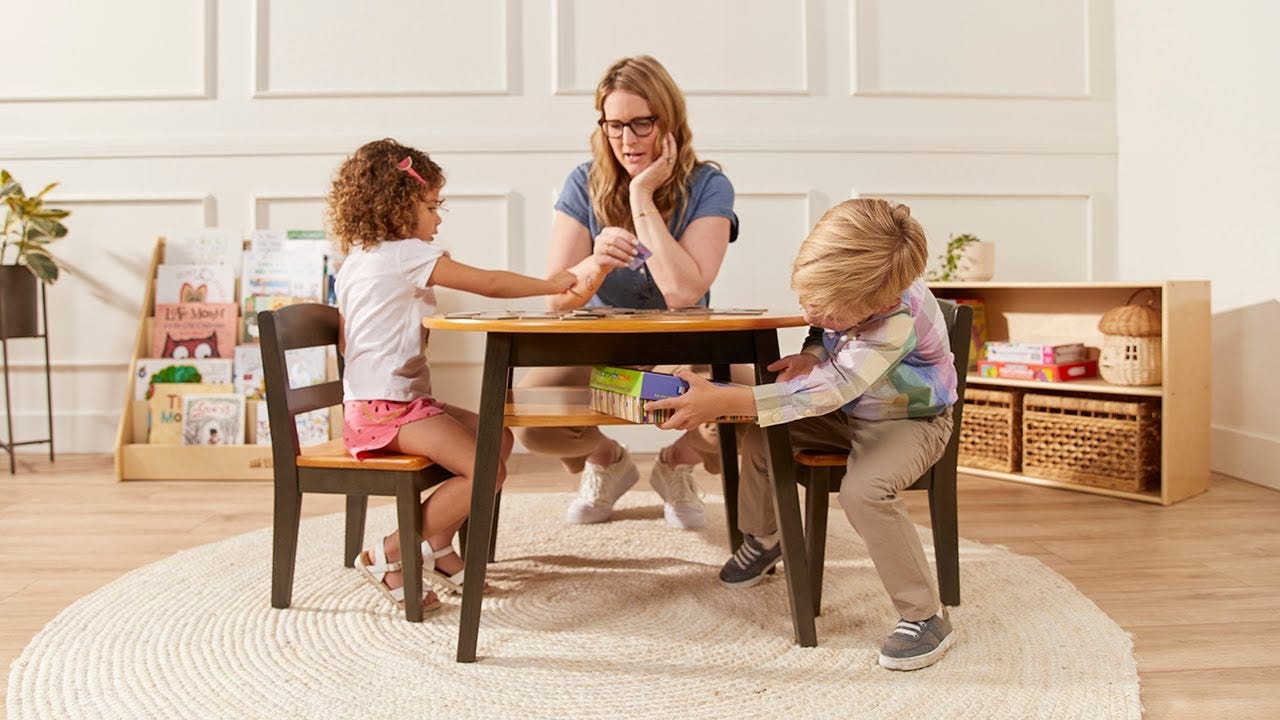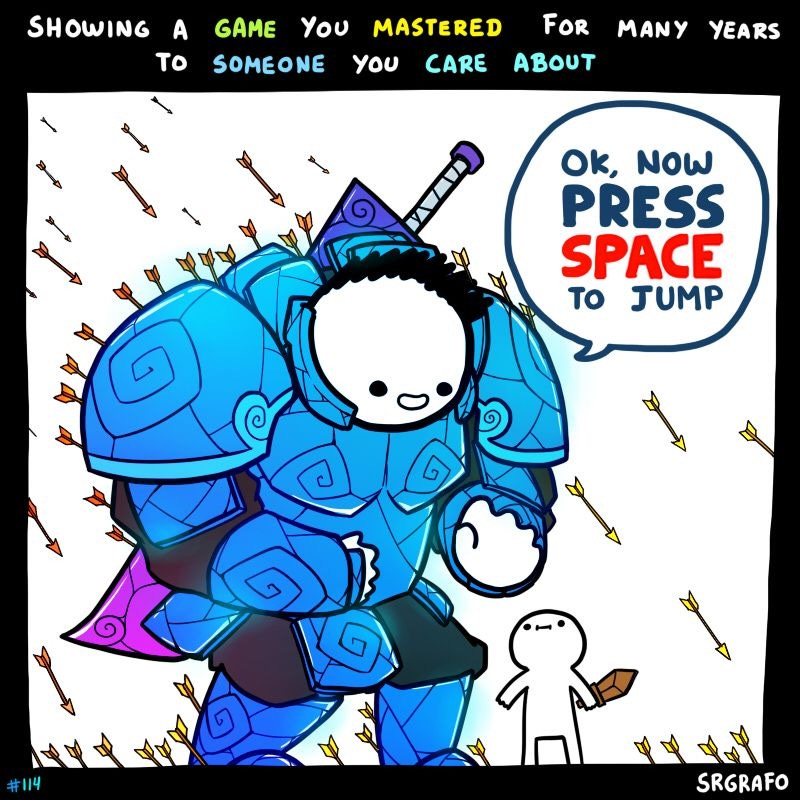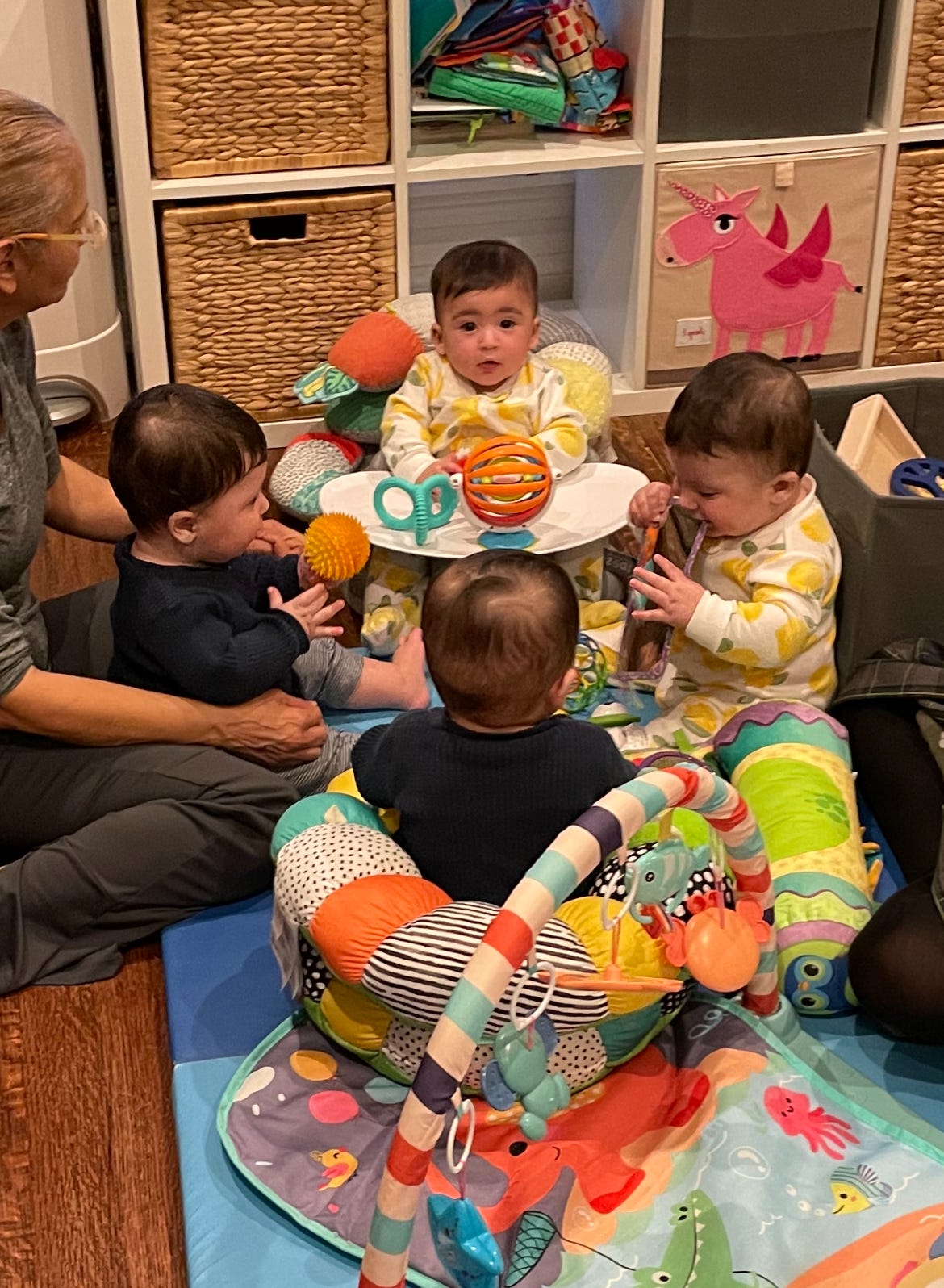There is no wisdom without context. What is your context?
Can you spot where I currently <don’t> sleep? :P
Do you have favorite memories from childhood? I’m talking ~5-10 years old. One of mine is about a cookie recipe from my grandmother that I LOVED (I still love it). It’s oatmeal chocolate chip (not raisins, I’m not a monster) – the kind that as an adult you pretend is healthy, because of all the extra things that somehow supersede the sugar and butter. Whenever we would have a bake sale at school I would ask my mom to make these cookies. I loved every step of making them: the connection I felt in my mother’s kitchen doing something together. Eating a raw one at the end…yum! We would pack them in these specific clear plastic tupperware containers, the kind that you “burp”, and off to school I’d go. Behind the bake sale table piled high with delicious treats, I’d dutifully sell anything and everything on the table. I learned to sell from my father, I’m excellent at it. Everything has to go! But I had a secret. For my whole life no one figured it out… no one but me liked these cookies… and I knew it. I was counting on it. At the end of the bake sale, as is custom, the leftovers (not a lot 😉) would go to the volunteers. Me? I needn’t compete for the last brownie, or doughnut, or piece of cake. Because I got all of MY cookies 🍪🥳…!
While it’s fun talking about manipulating a meta situation, we must not lose track of why we’re here: parenting. And more specifically, personal development. I’ll tie it all together, I promise.
I love this cookie memory because of the warm and fuzzy feeling I get thinking about it. I was resourceful. In control! But what made it special was more than cookies: I felt I was winning the game – I loved the play of it. And play is what we’re going to talk about today.
To catch us up, so far we’ve covered:
What is a parent? A person who shows someone what to do.
What do I show them? They watch what I do, so necessarily, personal development is the central focus of parenting: I can only lead someone as far as I’ve gone myself. I show whatever I show up as.
What is going on in my personal development journey? Who do I want to show up as? What do I personally care about? How do I build myself – my journey – into the “showing” that I want?
How do I deal with my prime obstacle, emotional regulation? I can’t help my kids emotionally regulate when I myself have succumbed to my own spiraling!
There is no wisdom without context.
Play is the context of childhood. Every morning with my toddler goes something like this: “Abba, can we play?!” “Can we play rescue?” “Can we play fishing?” “Can we play with my babies?”. “Can we race to the car?” (to go to preschool).
The reality is that my toddler is not yet capable, within the context of his world, of doing many things independently. Montessori education attempts to address this by creating an environment where children have as much agency and direct control as possible over the details of their experience. His imagination naturally creates a version of what he observes in reality, where he can be in as much control as possible. And that is a game to play – similar to my cookies. Everything he does is, in effect, a mental simulation of real life that his brain makes for him. As he grows, his simulation gets better – more refined, defined, and powerful.
Putting your feet flat on the floor while you’re sitting is a luxury we shouldn’t take for granted. No matter how you swing it, we live in an “adult” world. Playing “pretend” – the simulation – is a kid’s way of taking charge in their world, creating a context where they have agency. Everything he does is play.
Kids fitting into adult sizes (note the seatbelts – restrictions)
Adult fitting into kid sizes – they can come and go as they please
The pretend games currently on the regular in our home are:
Race to fire rescue
Race to police rescue
Making cookies for the team so they have energy to be fast
Flying in Iron Man suit to ice cream store as fast as possible
Car garage construction
Racing around a track
Transforming into boat/plane/drone mode to be “super fast”
Putting boosters (rocket engines, to go faster) on everything
I’m sure there’s a theme here…
Other stereotypical games might be:
House
Tea party
Super hero
Horseback rider
Doctor
Shopping
Construction worker
Sister whacker
Our son is looking at the world, figuring out patterns, and trying to find his place. Have you done that before? For this reason, having “rules”, and following them – as obscure as they might seem – is very important. For example, toys are anthropomorphized. They have feelings. Those feelings can be hurt. For your child, that empathy is real. Pretend real, but they can’t always tell the difference. For your kid, the stakes are real. <What does “real” mean?>
In my first post in this series outlining my parenting thesis, I described it thusly:
Everything is important. Every single minuscule detail. One of the most valuable lessons I learned from having premature babies is that they can’t even suck to eat; everything we know we take for granted. A child’s experience is their whole world, just like your experiences are your whole world. Don’t take your kid’s experience for granted.
Small children have a difficult time distinguishing between “real” and “pretend” things in relation to the adult “real” world. The pretend games they play help them understand the workings of the world by creating a point of access at their level of capability. When we get down on the floor and play their games at their level, we guide them (show them) to test the rules of their pretend world. Exploring, growing, into the adult world at their own pace.
A parent’s “job” is to teach your kid to individuate, with you as the guide. At the beginning you do everything for them, and you facilitate safe distancing as the independence muscles grow. Just like any other teaching, judge appropriate “distance” based on their level. Inappropriately applying distance at the wrong time can be perceived as abandonment, because that’s technically what it is. Inappropriately applying closeness can be perceived as smothering for the same reason.
With babies, you put them in the positions you want them to learn: you hold the bottle for them, you put them down in a seated position, you roll them over. As they develop, you transition into a facilitator, coaching them to hold the bottle themselves, to sit themselves, to roll over on their own.
Over time, as games become more complex (or more focused to intentionally highlight specific elements), your child will learn who they are (who they’re playing as), and what’s going on in the world (the rules of the game). The simulation will slowly blend into reality – the adult world. Pretend store (child game) becomes bake sale (transitional game) becomes grocery store (real life). Race to the car becomes a sport at school. Construction worker becomes… construction worker.
When I remember my experience selling cookies (or not selling cookies), what I’m actually doing is projecting a version of my current adult perception of reality – “real” life – into what my inner child perceived at that time – play equivalent, because the store was borderline between “pretend” and “real”. If someone had a video of one of those bake sales, it’s unlikely that the actual events were nearly as complex as I recall them to be. But that doesn’t take away from the growth I can experience by recalling them, because they were that informative in my playful journey toward who I am today.
Here’s comes the mic drop, and the tie-in to personal development:
There is no wisdom without context.
Who says the version of reality I believe I’m living in isn’t just some pretend game my mind has imposed, and I’m doing my best to establish a position of strength and agency in MY world? Did the playing pretend stop?
HAHAHA! Not at all. Your 30-year-old self will laugh at how childish your 20-year-old self was – how ignorant. How small-minded. The game doesn’t stop, you just forget you’re playing.
So here you are, reading this, in your own little game of pretend that you forgot you’re playing. Are you playing House? Construction worker? Engineer? Doctor? Firefighter? Consultant? Salesperson? For you, the stakes are real. Just like your 20-year-old self thought the stakes were real. And just like my 3.5-year-old does too. But are they? What are the stakes? WHAT IS REAL? Does that thing you’re stressing about really matter? What part of it?
So now, transport back to the scenario from last time: I’m sitting in a store and my kid is having a tantrum on the floor. He wants a toy, and I’ve said no. His perceived world is shattered because I said no, He can’t have it right now. And I’m frustrated, too. I want to convince him that his perception – and his reaction – is disproportionate. It’s not real. His read of the context is wrong. Well, what about ME? What’s shattering MY world? Is MY perception real? What pretend game am I playing in my head that it matters if another person is ticked off at the noise? Am I really a bad parent? NO! Maybe the objective isn’t forcing my child into compliance for some perceived social norm. Maybe the goal is to show him how to process his feelings, and the rest of the world doesn’t matter. Or maybe its something else entirely. What do you think?
We “adults” (whatever that means) are coaching our kids to play this super-meta game we’re all (humanity) playing together. The better *I* am at the game – the more I know my character, the world, any details – the more effectively I can teach – show – my child how to play. Just like a game, we need to remember a few things:
It’s a game. Chill out.
It’s important. Otherwise you wouldn’t spend so much time caring about it.
Only the developer/creator actually knows what’s going on – as players, NO MATTER HOW MUCH WE KNOW, all we can do is take our best guesses. Whatever word you want to use: G-d, Source, Universe, blah blah. True excellence comes from the pursuit of a deeper ignorance.
We need to be kind with new players, giving them time and space to orient themselves within this enormous beautiful crazy world. And we need to be kind with ourselves. You’re doing the best you can. And so is everyone else. Even that person – even if you know they're doing it wrong. But that’s not the end. Oh no, that’s not the end.
There is no wisdom without context.
If I really don’t know what’s going on, and if that’s really O.K., and if that’s actually part of the fun (if you like fiction of any kind you must acknowledge that the draw comes from built/released tension), maybe I can shift my whole approach. Maybe obstacles in my life are actually testing and training encounters for fledgeling new skills. Maybe my circumstances exist to empower me. Maybe the ”big scary thing” is placed intentionally…to be the protagonist in the most important story – my story. Enter: the child.
By allowing your inner child – discovery, wonder – back into the fore, coupled with the adult capacities you’ve developed… THAT is a FORCE. Show that to your children. Be their hero.
And don’t forget to bring a towel. Things can get messy.
There is no wisdom without context. What is your context?
P.S.
This post could be the last part of this series, because I’ve covered all of the major points. From here I can either continue in more depth about personal development in relation to parenting, or generalize into personal development in general. Would it be useful to have a single summarizing post? Do you just want pictures of babies? 😛
Interrupting a board meeting
My subscribers that I know in person are about 50/50 split between parents and not parents. What would you like?


